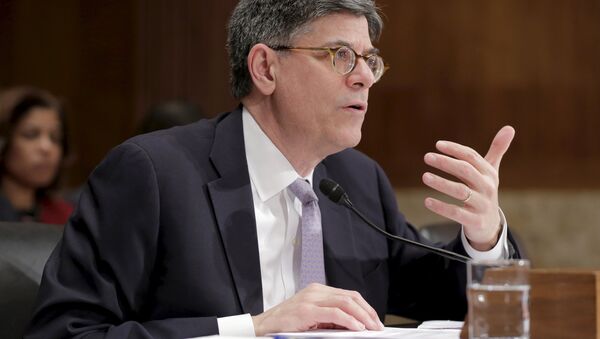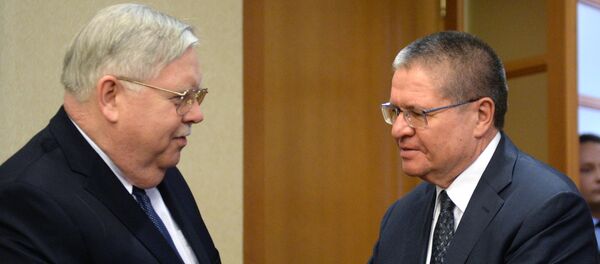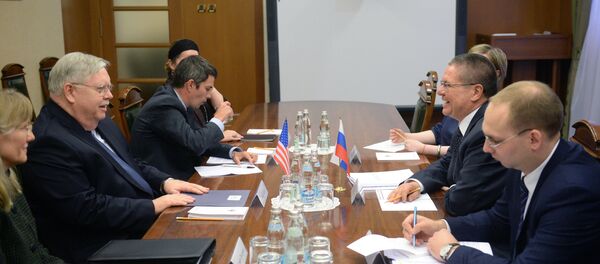"While Russia’s very deep economic decline was amplified greatly by the dramatic drop in oil prices, our targeted sanctions have worked as intended," Lew stated in a speech at the Carnegie Endowment for International Peace.
The secretary claimed that the US economic measures imposed "great costs" to Russia, while having only a limited macroeconomic effect on the United States and European Union.
The United States should exercise caution when introducing sanctions to ensure they do not have negative effects on the US role in global economy, according to Jack Lew.
"We must be conscious of the risk that overuse of sanctions could undermine our leadership position within the global economy, and the effectiveness of our sanctions themselves," Lew stated.
He warned that sanctions can strain diplomatic relations, destabilize the global economy and carry a risk of retaliation.
"We must guard against the impulse to reach for sanctions too lightly or in situations where they will have negligible impact," Lew argued.
The more the United States conditions the use of its financial system and the dollar to exert compliance with US foreign policy, the greater the risk "of migration to other currencies and other financial systems," Lew pointed out.
Nevertheless, sanctions comprise a powerful means to protect US national security interests, Lew observed.
"Economic sanctions have become a powerful force in service of clear and coordinated foreign policy objectives — smart power for situations where diplomacy alone is insufficient, but military force is not the right response," Lew said.
In January, the United States lifted sanctions targeting Iran over its nuclear program as the global nuclear watchdog International Energy Atomic Agency (IAEA) verified Tehran’s compliance with the nuclear agreement.
The United States imposed a series of sanctions against Russia in 2014, accusing it of interfering in the conflict between the Kiev government and independence forces in southeastern Ukraine's Donbas region.
The Kremlin has repeatedly denied the allegations, stressing that it was an instrumental party in negotiating the Minsk accords aimed at ending hostilities between Kiev and the Donbas militias.






